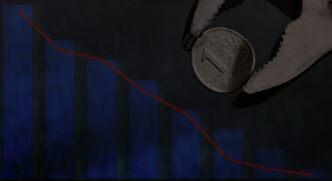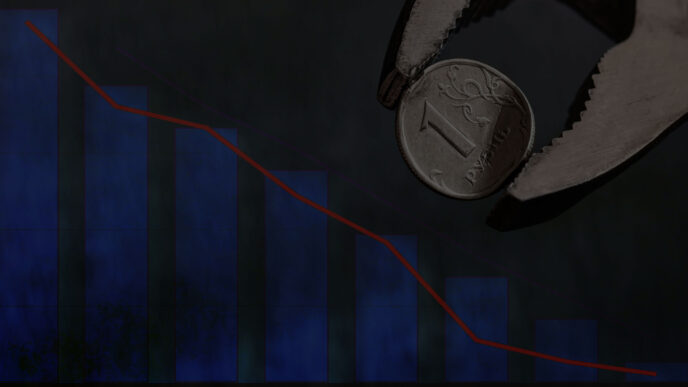Understanding economics is essential not just for professionals but for anyone who wants to navigate the complexities of the financial world. Whether you’re an aspiring economist, a student, or simply someone curious about how the economy works, these 10 must-read books will help you grasp key economic principles. Covering everything from foundational economic theories to modern-day insights, this list is designed to enhance your understanding of the forces that shape the global economy.
1. Capital in the Twenty-First Century by Thomas Piketty
Thomas Piketty’s “Capital in the Twenty-First Century” is a groundbreaking analysis of wealth inequality. Piketty traces the historical evolution of wealth and income inequality over the past three centuries, arguing that unchecked capital accumulation has led to significant economic imbalances. He presents data-driven research to show how capital tends to grow faster than the economy, concentrating wealth in the hands of a few. The book calls for progressive taxation and other policies to reduce inequality and redistribute wealth.
2. The Wealth of Nations by Adam Smith
“The Wealth of Nations” by Adam Smith is widely regarded as the foundation of modern economic theory. Published in 1776, it introduces the concept of the “invisible hand” of the market, where individuals pursuing their self-interest unintentionally contribute to societal good. Smith also delves into the division of labor, free markets, and productivity, which remain central to economics today. For anyone looking to understand the basics of capitalism and the role of markets in economic development, this book is a must-read.
3. Thinking, Fast and Slow by Daniel Kahneman
In “Thinking, Fast and Slow,” Nobel laureate Daniel Kahneman explores the two systems of thinking that shape human decision-making: fast, intuitive thinking and slow, rational thinking. Kahneman’s insights into cognitive biases and heuristics provide a better understanding of how individuals make economic decisions. The book challenges the notion that humans are always rational actors, which is central to traditional economic theory. It has profound implications for fields like behavioral economics, finance, and policy-making.
4. Freakonomics by Steven D. Levitt and Stephen J. Dubner
“Freakonomics” is a highly unconventional yet insightful look at economics through the lens of everyday life. Levitt and Dubner explore hidden incentives behind a variety of topics, from crime rates to education, and even real estate. By applying economic theory to surprising subjects, they reveal the underlying motivations that drive human behavior. This book is perfect for those who want to see how economics can explain seemingly unrelated events in our world.
5. The General Theory of Employment, Interest, and Money by John Maynard Keynes
John Maynard Keynes’ magnum opus revolutionized macroeconomics and laid the groundwork for much of modern economic policy. In this seminal work, Keynes argues that total spending in an economy (aggregate demand) is the driving force behind employment and production. He also explains the role of government intervention in stabilizing the economy during recessions. This book is critical for understanding the origins of fiscal and monetary policy and their impact on economic cycles.
6. Nudge by Richard H. Thaler and Cass R. Sunstein
“Nudge” focuses on how small interventions can lead to better decision-making in economics, public policy, and everyday life. Thaler and Sunstein introduce the concept of “choice architecture,” explaining how choices can be framed to guide people toward better outcomes without restricting their freedom. The ideas in this book have been widely applied in behavioral economics and policy-making, especially in areas like savings, health, and environmental policy.
7. The Big Short by Michael Lewis
Michael Lewis’ “The Big Short” offers a gripping account of the 2008 financial crisis, focusing on the individuals who foresaw the collapse of the housing market and bet against it. Lewis provides an insider’s view of how the housing bubble formed, the role of financial institutions, and the devastating impact of the crash. The book also highlights the systemic flaws in the financial system, making it essential reading for anyone interested in economic bubbles and financial crises.
8. Why Nations Fail by Daron Acemoglu and James A. Robinson
In “Why Nations Fail,” Acemoglu and Robinson explore why some nations prosper while others fail, focusing on the role of political and economic institutions. They argue that inclusive institutions, which allow broad participation in economic and political activities, lead to prosperity, while extractive institutions, which concentrate power and wealth, lead to poverty. The book draws on historical case studies to explain why some countries achieve sustained economic growth, while others remain stagnant.
9. The Black Swan by Nassim Nicholas Taleb
In “The Black Swan,” Nassim Taleb examines rare and unpredictable events—called black swans—that have massive consequences for financial markets and economies. Taleb argues that traditional economic models often fail to account for these outlier events, leading to devastating consequences. This book is crucial for understanding the role of risk, uncertainty, and randomness in financial systems, as well as how to prepare for such events.
10. The Road to Serfdom by Friedrich Hayek
Friedrich Hayek’s “The Road to Serfdom” is a passionate defense of classical liberalism and free-market economics. Written during World War II, Hayek warns against the dangers of government central planning and the slippery slope toward totalitarianism. His arguments in favor of limited government intervention and personal freedom resonate strongly in today’s debates about regulation, socialism, and the role of government in the economy.
These 10 books offer invaluable insights into various aspects of economics, from foundational theories to modern-day economic challenges. Whether you’re looking to understand market dynamics, financial crises, or the role of government in the economy, these books provide essential knowledge that can help you navigate today’s complex financial landscape.













